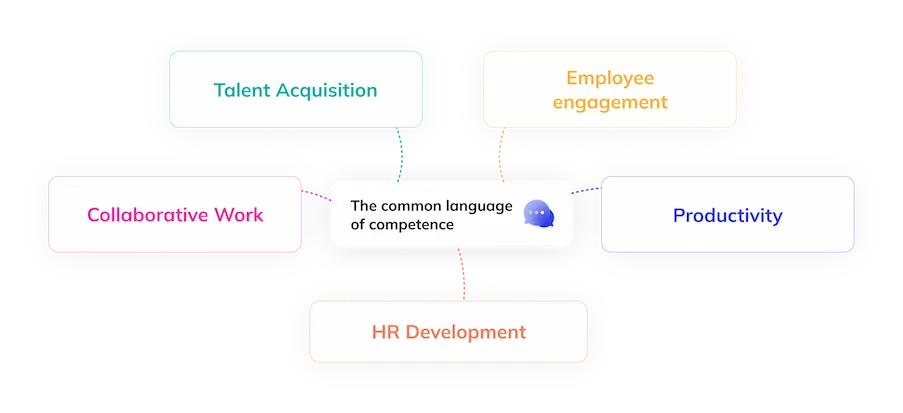HR strategy plays an important role in the overall performance of a company. 6 out of 10 managers observe a growing role for the HR function in company decisions, but do they have sufficient tools? Managing the company’s skills is a major concern for HR teams, and one that offers the company sustainability at a time when businesses are transforming faster than ever. How can digital technology improve this practice?
HR strategy: which digital solutions to use?
The vocation of a company is to create value. Achieving this objective depends on its human capital. Digital practices have evolved, as now more than 60% of companies with more than 2,000 employees have adopted a talent management solution as part of their HR strategy.
What are the most widely adopted HR solutions in companies?
The most frequently adopted solutions are in order (ANDRH figures, 2021 study):
- The Talent Magazine
- Performance Management
- Employee data management
- Recruitment
- The Development of skills
- Internal Mobility
Why digitalize the management of skills ?
Digitizing the management of skills allows to:
- Provide qualitative information on the levels of skills
- Measure the gap with what is expected for each job
- Visualize the evolution of skills
- Integrate external skills that have an impact on the business
Digital transformation is now recognized as a key lever for increasing productivity wherever it is implemented. However, the HR functions, while putting the Human being at the heart of their activities, are also expected by the General Management in terms of ROI.
41% of employees are concerned about the sustainability of their skills in 5 years.
Encouraging the digitization of the skills management approach responds, in part, to the need for reassurance and talent development. The skill is seen as the core of HR activities from recruitment to employability.
Digitization, what impact on the entire HR policy?
In addition to managing skills, the implementation of a single platform (HR IS type), used for the entire HR cycle, also makes it possible to combine productivity gains with an improved employee experience. Employees also benefit from increasingly intuitive interfaces, which encourages the adoption of these tools and empowerment in the management of their careers.
Resource planning focuses almost exclusively on the headcount and not enough on skills, their anticipation and the distribution of resources according to the format of the work contract. Digitalization offers a compass based on the collection and analysis of figures. This valuable data makes it possible to establish a precise inventory of the skills that can be mobilized and to connect them to all the opportunities.
In conclusion, it should be noted that the digitalization of HR processes not only makes the entire company more profitable, but also contributes to building the corporate culture. All this benefits the employer brand. Deploying an HR digitalization strategy is therefore essential today, but beware: just like a business strategy, an HR strategy is unique… It is built around the company’s own objectives and culture.
See our complete page:“All about Management of skills“.








